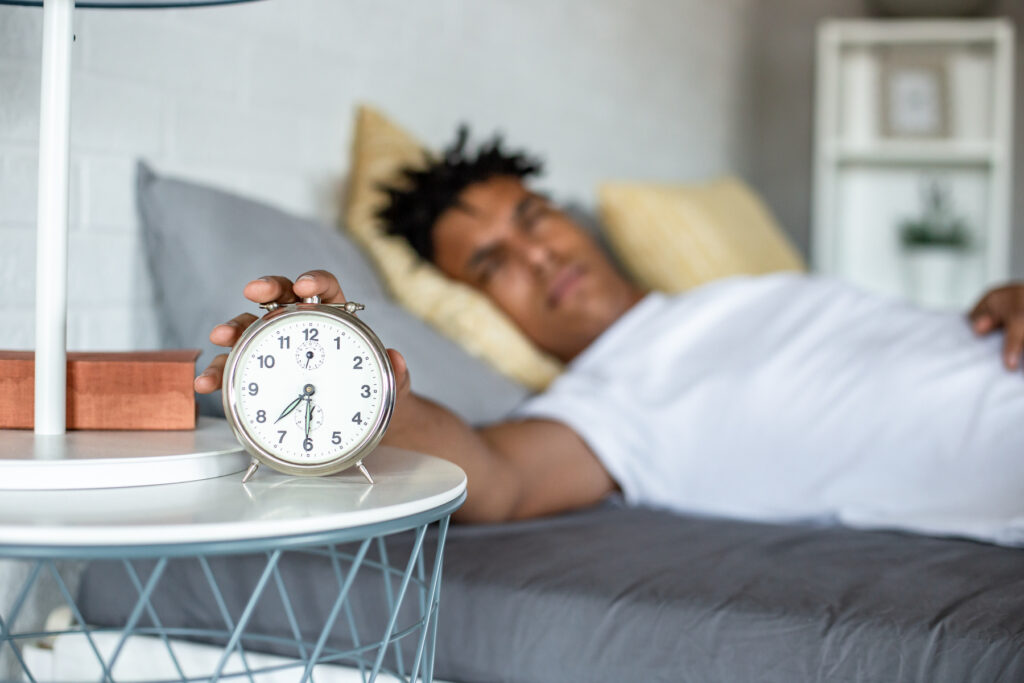Introduction: The “Quiet” Sleep Disorder That’s Not So Harmless
When most people think of sleep apnea, they imagine someone loudly snoring, gasping for air, or waking up repeatedly through the night. While that’s often true for severe cases, mild sleep apnea tends to fly under the radar.
The word “mild” might make it sound harmless — something you can live with and ignore. But the reality is that even mild sleep apnea can affect your health, daily performance, and long-term well-being. Left untreated, it can worsen over time and contribute to problems such as high blood pressure, heart disease, and chronic fatigue.
Understanding what mild sleep apnea is, why it happens, and how to manage it can help you make informed choices about your health before it becomes a bigger problem.
Causes of Sleep Apnea: How and Why It Happens
Sleep apnea occurs when breathing is repeatedly interrupted during sleep. In mild sleep apnea, these pauses happen fewer times per hour than in moderate or severe cases — but the underlying triggers are often the same.
1. Obstructive Sleep Apnea (OSA)
This is the most common type, caused by the muscles in the back of the throat relaxing too much, leading to a blocked airway.
See more: Unsure Where to Start? Try a Sleep Test Adelaide Professionals Suggest
Common risk factors include:
- Extra weight around the neck — Even small amounts of excess fat can narrow the airway.
- Natural anatomy — Some people have naturally narrow airways, larger tonsils, or certain jaw shapes that increase the risk.
- Age — Muscle tone decreases with age, making airway collapse more likely.
- Sleeping position — Lying on your back can cause the tongue and soft palate to fall backward, blocking airflow.
2. Central Sleep Apnea (CSA)
Less common than OSA, this form occurs when the brain fails to send proper signals to breathing muscles. Mild CSA can happen in people with certain heart conditions, neurological disorders, or those taking specific medications.
3. Lifestyle Triggers That Worsen Symptoms
Even if you have a mild form of sleep apnea, certain habits can make it worse:
- Drinking alcohol before bed (relaxes airway muscles)
- Using sedatives or sleep medications
- Poor sleep hygiene, such as irregular schedules
- Smoking, which inflames the airway
- Untreated allergies or nasal congestion
Symptoms: The Obvious and the Overlooked
Mild sleep apnea can be tricky to identify because its symptoms are often subtle or mistaken for something else — like stress, poor sleep habits, or getting older.
Common Signs
- Snoring — Often lighter than in severe cases, but still frequent.
- Daytime fatigue — Feeling drained even after a “full” night of sleep.
- Morning headaches — Caused by reduced oxygen levels during the night.
- Dry mouth or sore throat in the morning — A sign of breathing through your mouth overnight.
Less Obvious Clues
- Irritability and mood swings — Sleep disruptions affect emotional regulation.
- Difficulty concentrating — You might notice it at work, while reading, or driving.
- Mild memory lapses — Poor sleep quality impacts memory processing.
- Nighttime urination — Frequent awakenings can make you more aware of bladder signals.
Relatable example:
James, 46, thought his afternoon grogginess was just due to getting older. His wife mentioned he sometimes stopped breathing for a few seconds at night, but he brushed it off. After a sleep study, he learned he had mild obstructive sleep apnea. With simple lifestyle adjustments and a dental appliance, his symptoms improved, and his energy levels returned.
Why Even Mild Sleep Apnea Matters
It’s easy to think that “mild” means “safe,” but this isn’t the case. Even low-level oxygen drops during sleep can have cumulative effects on your body.

Possible long-term consequences include:
- Gradually increasing blood pressure
- Higher risk of cardiovascular disease
- Impaired blood sugar regulation
- Lowered cognitive performance over time
- Reduced quality of life due to constant low energy
In other words, addressing mild sleep apnea early can help prevent future health problems.
Treatment Options: From Lifestyle Tweaks to Medical Support
The good news? Mild sleep apnea often responds very well to simple changes — and for those who need extra help, there are effective medical solutions.
1. CPAP Therapy
A CPAP (Continuous Positive Airway Pressure) machine keeps the airway open by delivering a steady flow of air through a mask while you sleep. While more often used in moderate to severe cases, some people with mild apnea choose CPAP if symptoms are significantly impacting their daily life.
Pros: Highly effective and works immediately.
Cons: Takes time to adjust to wearing the mask.
2. Oral Appliances
These custom-made mouthpieces gently move the lower jaw or tongue forward to prevent airway collapse. They’re comfortable for many mild cases and easier to travel with than a CPAP.
Example: Sarah, 39, couldn’t tolerate her CPAP mask, so her dentist fitted her with an oral appliance. Her mild apnea improved, and she felt more refreshed each morning.
3. Weight Management
For those carrying extra weight, losing just 5–10% of body mass can significantly improve symptoms. Even small changes can reduce the pressure on the airway.
4. Sleep Position Training
Some people experience worse apnea when sleeping on their back. Special pillows or wearable devices can encourage side-sleeping, which keeps the airway more open.
5. Lifestyle Changes
- Avoid alcohol and sedatives in the evening.
- Keep a consistent sleep schedule.
- Treat nasal allergies or chronic congestion.
- Quit smoking to reduce airway inflammation.
6. Surgery
Rarely the first choice for mild cases, surgery may be considered if enlarged tonsils, nasal blockages, or jaw structure are major contributors.
Living Comfortably with Mild Sleep Apnea
The goal of treatment isn’t just to stop breathing interruptions — it’s to restore high-quality, restful sleep that leaves you feeling alert, focused, and healthy.
Mild cases, when addressed early, can often be managed without invasive measures. Some people find that with consistent lifestyle adjustments, their symptoms decrease to the point where no devices are needed at all.
Conclusion: Don’t Let “Mild” Fool You
Mild sleep apnea might not sound alarming, but it’s still a health issue worth addressing. Even subtle breathing disruptions can have ripple effects on your mood, memory, and heart health.
If you notice symptoms — whether it’s light snoring, unexplained fatigue, or subtle mood changes — don’t wait for them to worsen. A simple sleep evaluation can confirm what’s happening and guide you toward the right treatment.
Your body does its best healing and recovery during deep, uninterrupted sleep. Protecting that process now can pay off for years to come — helping you wake up feeling like the best version of yourself.

